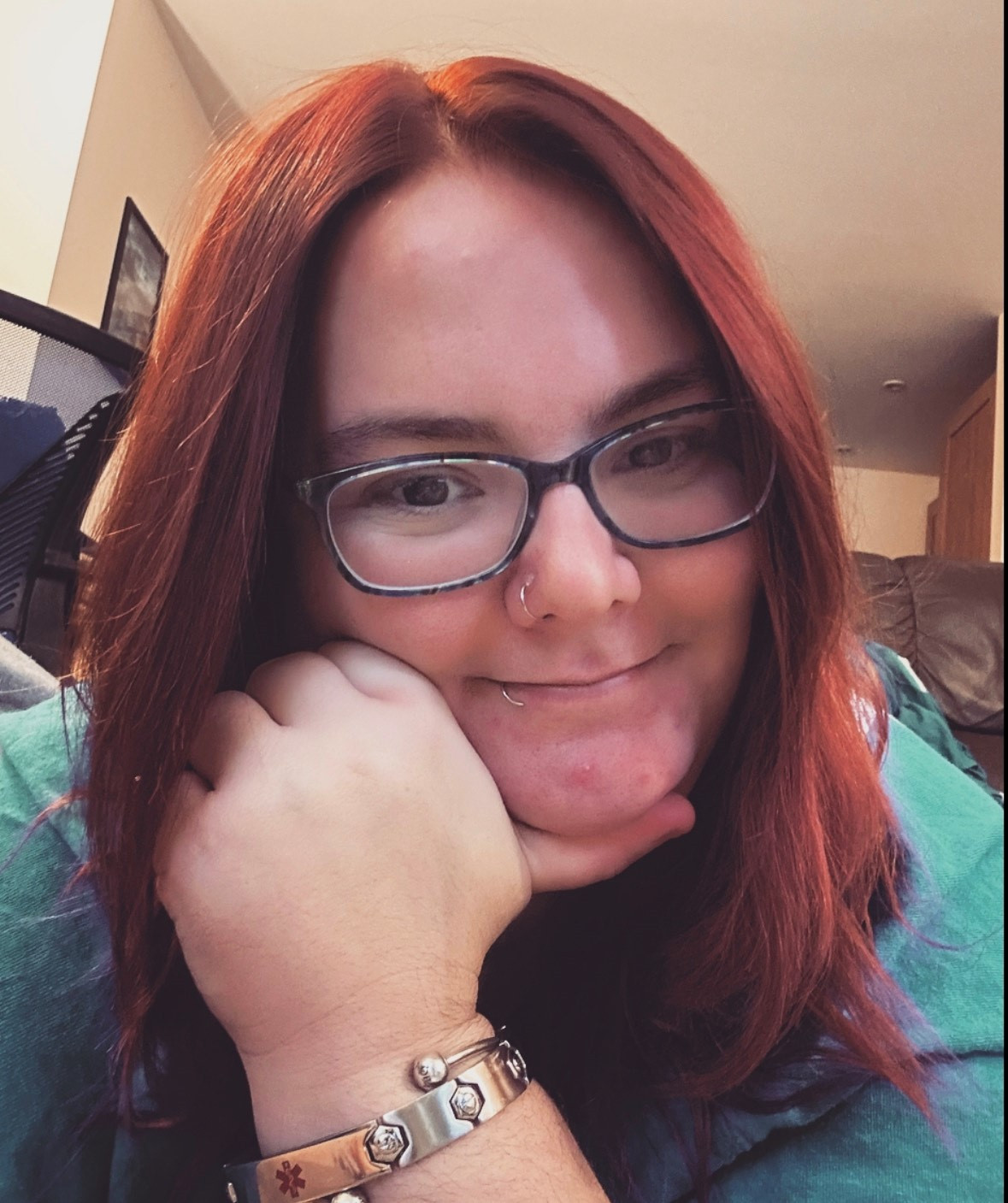
Diagnosed with type 1 diabetes as an adult, Kerry is pumped to now be supporting others
Kerry Fuller, a 35-year-old social worker from Canterbury, was diagnosed with type 1 diabetes in July 2019 after a long period of feeling unwell.
Having been previously misdiagnosed with type 2 diabetes in 2016 before she moved to Kent, Kerry was still getting regular infections and continued to lose weight. It wasn’t until a nurse at a GP surgery suspected type 1 diabetes instead, that Kerry had some answers as to why she was still so poorly.
Kerry said: “I’m so grateful to the nurse who really listened to me and helped to get me a correct diagnosis. I remember just feeling relieved to have a starting point for treatment, knowing I would soon feel better. I had friends with type 1 diabetes so it wasn’t completely new to me but I threw myself into research and educated myself as much as possible.
“Initially I was given mixed insulin but that meant having to give myself 12 injections a day, including through the night which wasn’t sustainable for me. I moved on to a continuous glucose monitoring (CGM) device and this allowed me to scan my mobile to the wearable technology to view my glucose levels. It also raised an alarm when my blood sugar levels were too high or too low. It’s a fantastic device that lets you monitor your levels and even provides analytics as to the timings for when you might need insulin.
“I found this level of information to be useful, but I also found myself focusing too much on the data and becoming anxious. I spoke to a consultant and diabetes specialist nurse (DSN) at the QEQM and I requested to try the insulin pump instead, to which they agreed.”
An insulin pump is a small device that attaches to your body and releases insulin when you need it. Removing the need for injections. DSNs help set everything up so it releases the right amount of insulin for your body, but it can be changed it to adapt what you’re doing that day, such as exercise.
The pump isn’t the only thing that can help Kerry with her diabetes though. If her levels get too low a quick snack of jelly babies or a drink of orange juice can help return her levels to normal and prevent her from having hypoglycaemia, commonly known as a hypo.
Kerry said: “I always have to make sure that I have hypo snacks in bag in case my levels get too low, and I’m normally really organised but unfortunately on one morning walk with a co-worker I forgot to check my bag before I left. I knew my levels were dropping so I dipped into my bag but nothing was there. We tried to get to a shop but I wasn’t quick enough and I went into severe hypoglycaemia which caused me to have a seizure.
“It was scary for me when I realised what had happened, but I think it was even scarier for my friend who had just seen me have a seizure. Fortunately, that’s only happened to me the once, and I’m now even more careful about checking my bag before I go out.”
Having diabetes has changed Kerry’s relationship with food. For example, pizza is no longer a quick and easy dinner, it’s a complex carb which means it’s hard to know how much insulin is needed.
Kerry said: “I had no idea that white bread behaves differently to brown bread but fortunately I only have to enter the carbohydrate details and my pump works out how much insulin I need.
“I struggled with food as I had to focus so much on what I was eating and how it affected my body. I entered a King’s research trial called STEADY for disordered eating in those with type 1 diabetes and that really helped me. They gave DSNs the tools to complete cognitive behavioural therapy and help us reframe our thoughts around food so now I feel much more confident.
“There’s so much more to diabetes than just insulin because it really affects your mental health and wellbeing, especially if like me you were diagnosed as an adult.
“In April 2022, I attended a KAT1E local educational course which I found really useful. I learned things there that actually would have helped me when I was first diagnosed. I really recommend the course to everyone in Kent and Medway who has been recently diagnosed, or have questions about living with type 1 diabetes. Of course, we can always email a DSN nurse with questions too and they’re always really helpful but this course gives a great overview of life with type 1 diabetes.
“I have become really passionate about education and helping those with diabetes and so last year I joined the team at #DiabetesChat, a social-media-based peer support group founded by Tom Dean who recognised the real need for peer support and how important it is. We invite guest speakers regularly, including DSNs from East Kent Hospitals, and we won a Quality in Care (QiC) award for best peer support group earlier this year.”
If you are experiencing similar symptoms and are concerned about diabetes, please contact your GP. If you think the insulin pump could be suitable for you, please reach out to a DSN who can help advise. For more information about diabetes please visit the NHS website https://www.nhs.uk/conditions/diabetes/.